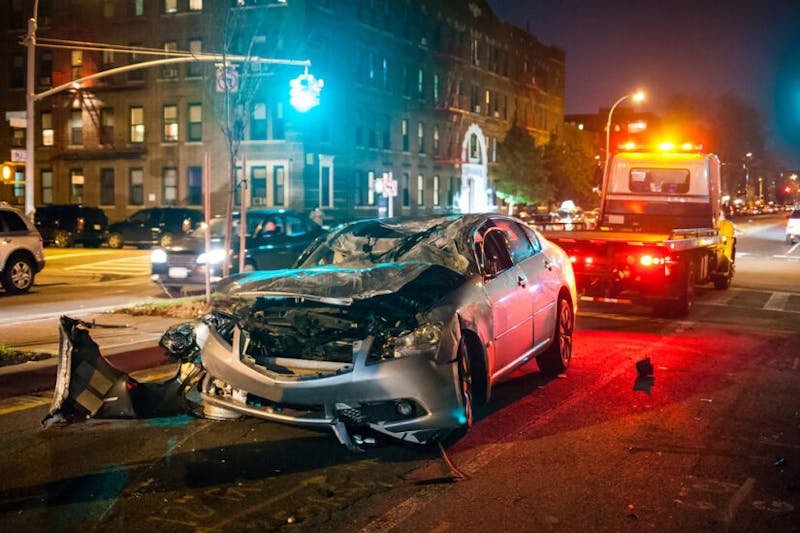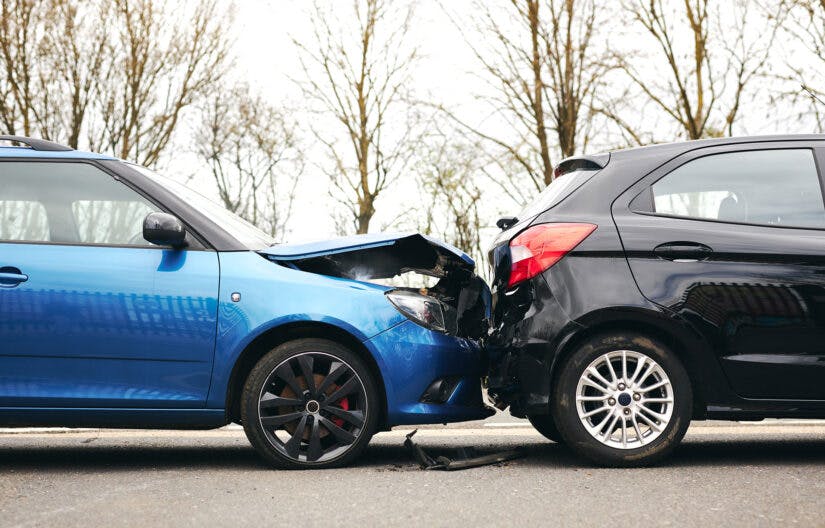
Some car accidents only result in minor dents and dings. Others can completely destroy the vehicle and render it unsafe for driving. If your vehicle’s repairs cost more than its value, it will likely be considered a total loss.
Hence, the term “totaling” a vehicle refers to when a car crash does so much damage that it either can’t be fixed or would cost more to repair than replace it. Knowing what to expect from your insurance company in the event of a total loss on your vehicle will help you move forward with the next steps.
The Definition of Total Loss
While it usually doesn’t take an expert to look at a smashed-up car and say it’s totaled, your insurance company needs to declare it. Your insurer will send an adjuster to look at your vehicle and evaluate the damage.
To be declared a total loss, the cost of your vehicle’s repairs will be higher than its actual value, or the car can’t be repaired. If you were in a car accident of any kind, you would need to contact your insurance company to start your claim. The insurance company will be the one to decide whether or not your vehicle will be totaled out.
Generally, if just your front driver airbag deploys, it may not automatically make your vehicle a total loss. But if all of them deploy on the front and sides of your vehicle, your insurance company will more than likely label it as a total loss.
How to Spot a Totaled Vehicle
There are several signs to look for when wondering if your insurance will total out your car. Your car may have bent parts to the point that they obstruct your view. If fluid is leaking, that’s another expensive repair, and it can result in the insurance company calling it a total loss.
Cars that are over five years old with damage to the frame may also cost too much to repair. The frame would need to be rebuilt and repainted, which will likely exceed the cost of the vehicle. You can always look up your vehicle’s value on Kelley Blue Book to get an estimate of its worth.
High-mileage vehicles are often totaled out as well. The higher the mileage, the less the vehicle is worth, meaning it’s more likely to be totaled after an accident.
What Happens If My Car Is Declared a Total Loss?
Georgia has laws that govern how insurance companies are permitted to handle total losses. Under this rule, your insurance company has two options—replace the car, or give you cash for the car’s value.
Replacing the Vehicle
If your insurance decides to replace your totaled vehicle, they will need to consider the other costs of ownership, including licensing fees and taxes. The replacement vehicle must also be in good condition, comparable to the car you had in terms of model, body style, mileage, and year. With regards to the year, it must be the same year or newer.
Additionally, the vehicle they replace your totaled vehicle with must be accessible to you for an inspection within a 50-mile radius of where you reside. You have the option to go a further distance if you agree to it. The replacement vehicle also must be purchased from a licensed dealer or well-established printed sales publication.
You will receive an insurance claim that details the complete terms of your vehicle replacement. If your insurer cannot meet these requirements for any reason, they will then give you the cash value of your totaled vehicle instead.
Cash for Your Car
The other option is to get the cash equivalent of your vehicle. This would be determined by the car’s cost, calculated based on the condition of your vehicle before the accident occurred. The amount they give you in cash should be enough to buy a comparable vehicle of the same make, model, year, and body style as well as the fees associated with ownership—such as taxes and licensing fees.
You might be wondering how they determine what your vehicle is worth when it’s damaged beyond repair. Insurance companies will examine two or more comparable vehicles in your local area to determine the cash equivalent value. You can also do your own homework, and if you turn up a replacement car within 30 days that is higher in cost than the cash settlement you’re being offered, you can get your insurance company to make up for this discrepancy.

What Happens If I Still Owe Money on My Totaled Vehicle?
Your vehicle’s worth is still the same no matter how much money you owe on your auto loan. This will not impact your car accident claim. If you still owe $10,000 on your auto loan and your vehicle was worth $25,000, that vehicle is still valued at $25,000.
This is where gap insurance can come in handy, but if you don’t have it, you will still need to pay off the remainder of your loan. In this example, if you receive $25,000 for the insurance settlement, you will still need to pay the $10,000 balance remaining on your vehicle loan.
In other words, you’d be left with $15,000 to purchase another vehicle or use to cover other expenses related to the accident.
What Should I Do If My Car Is Called a Total Loss?
Georgia is an at-fault state, which means that if someone else was negligent and totaled your car, they can be held liable. Speaking with a car accident lawyer from The Pendergrass Law Firm can help you to determine if your insurance settlement offer is fair and whether or not you should pursue a lawsuit against the at-fault driver.


